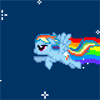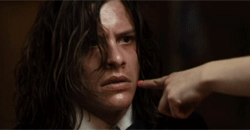Bill O'Reilly
Moderator: Community Team
46 posts
• Page 2 of 2 • 1, 2
i was watching SNL one night. the news section with the two chicks doing one-liners. they made reference to Bill hitting on his very young female journos. the brown haired one - i forget the name, she recently came back from maternity leave seemed to be speaking from first-hand experience.
does anyone know anything about that ?
does anyone know anything about that ?
-

 greenoaks
greenoaks
- Posts: 9977
- Joined: Mon Nov 12, 2007 12:47 am






















greenoaks, what does that have to do with whisky?
saxitoxin wrote:Your position is more complex than the federal tax code. As soon as I think I understand it, I find another index of cross-references, exceptions and amendments I have to apply.
Timminz wrote:Yo mama is so classless, she could be a Marxist utopia.
-

 MeDeFe
MeDeFe
- Posts: 7831
- Joined: Thu Apr 06, 2006 2:48 am
- Location: Follow the trail of holes in other people's arguments.











greenoaks wrote:i was watching SNL one night. the news section with the two chicks doing one-liners. they made reference to Bill hitting on his very young female journos. the brown haired one - i forget the name, she recently came back from maternity leave seemed to be speaking from first-hand experience.
does anyone know anything about that ?
If true, I'll be forced to give Billio a +1 point for a job decently done.
MeDeFe wrote:greenoaks, what does that have to do with whisky?
Nothing at the moment. But I mean, really, what CANT be said about Whisky?
-

 HayesA
HayesA
- Posts: 244
- Joined: Tue Jun 19, 2007 2:31 pm
- Location: State College, PA





Symmetry wrote:unriggable wrote:Symmetry wrote:There's no such thing as Scotch whiskey.
I'm pretty sure the word Scotch is short for scottish, by name there is no scotch whiskey but in fact all scotch is a whiskey offshoot.
Nah- it's a spelling thing. Scottish stuff is whisky , Irish stuff is whiskey. If you get a bottle that says "Scottish Whiskey", chances are it's not Scottish. There might be one or two exceptions that I don't know about though.
The standard spelling is "whisky", and if you see the "e", think "Éire".
Johnny Walker is the only non-Scottish Whisky that is allowed to be called Whisky, and they got special permission from Scotland.
Army of GOD wrote:This thread is now about my large penis

-

 DaGip
DaGip
- Posts: 4047
- Joined: Sat Feb 10, 2007 4:48 am
- Location: Watertown, South Dakota










MeDeFe wrote:greenoaks, what does that have to do with whisky?
You would have to be drinkin whiskey to let bill hit on you
04:42:40 ‹apey› uhoh
04:42:40 ‹ronc8649› uhoh
iAmCaffeine: 4/28/2016. I love how the PL players are getting wet on your wall
04:42:40 ‹ronc8649› uhoh
iAmCaffeine: 4/28/2016. I love how the PL players are getting wet on your wall
-

 apey
apey
- Posts: 3957
- Joined: Sun Mar 18, 2007 6:38 pm
- Location: mageplunkas guest house












The word whisk(e)y most likely evolved over a period of 400 years from the the Gaelic "uisge beatha" (Irish pronounciation: Ishka Baha; Scotish pronounciation: Ishga Baugh) which translates as "water of life." Other early English spellings of the time included "usquebea" and "iskie bae." By the time Henry II invaded Ireland the word had become "whisk(e)y" referring to any of the grain produced alcoholic spirits produced in the British isles. It was not until the 19th and later centuries that clear production and stylistic differences between Scottish, Irish, American, Canadian and Japanese whiskies were clearly defined.
Basically the naming rule is this: if it is from Scotland, Canada or Japan the word is "whisky" (without an 'e') and usually distinguished by its country of origin such as Scotch whisky. If it originates from Ireland or the United States, it has the 'e' and defined by its country (Irish whiskey), region (Tennessee whiskey), style (bourbon whiskey) or ingredients (rye whiskey). Here's where it gets complicated: Some American bourbon and whiskey brands, for whatever reason, do not to spell their brand with an 'e'. While Jack Daniels (a Tennessee whiskey) spells their brand with an 'e', the other Tennessee whisky, George Dickel, does not. Maker's Mark, Old Forester and Early Times do not spell theirs with an 'e' either.
Historically, the Americanization of British words involved shortening, simplifying and/or losing letters. So why do most American whiskeys have an 'e'? The Whisky Rebellion in 1794 doesn't have an 'e'. According to the Bureau of Alcohol, Tobacco and Firearms' regulations (Title 27, Chapter 1, Part 5) which has definitions of the classes of spirits in the United States there is not a single use of the word "whisky" with an 'e'.
Today, the reason for the 'e' may be more business oriented. With international trade treaties, copyright and trademark laws, only spirits produced in Scotland can be called "Scotch whisky". Other laws protect Canadian whisky and Bourbon whiskey just as they protect Cognac and Tequila as a defined product brand.
There's the geek answer for ya....
Cheers.
Basically the naming rule is this: if it is from Scotland, Canada or Japan the word is "whisky" (without an 'e') and usually distinguished by its country of origin such as Scotch whisky. If it originates from Ireland or the United States, it has the 'e' and defined by its country (Irish whiskey), region (Tennessee whiskey), style (bourbon whiskey) or ingredients (rye whiskey). Here's where it gets complicated: Some American bourbon and whiskey brands, for whatever reason, do not to spell their brand with an 'e'. While Jack Daniels (a Tennessee whiskey) spells their brand with an 'e', the other Tennessee whisky, George Dickel, does not. Maker's Mark, Old Forester and Early Times do not spell theirs with an 'e' either.
Historically, the Americanization of British words involved shortening, simplifying and/or losing letters. So why do most American whiskeys have an 'e'? The Whisky Rebellion in 1794 doesn't have an 'e'. According to the Bureau of Alcohol, Tobacco and Firearms' regulations (Title 27, Chapter 1, Part 5) which has definitions of the classes of spirits in the United States there is not a single use of the word "whisky" with an 'e'.
Today, the reason for the 'e' may be more business oriented. With international trade treaties, copyright and trademark laws, only spirits produced in Scotland can be called "Scotch whisky". Other laws protect Canadian whisky and Bourbon whiskey just as they protect Cognac and Tequila as a defined product brand.
There's the geek answer for ya....
Cheers.

"Give me a woman who loves beer and I will conquer the world."
-Kaiser Wilhelm II
-

 Iz Man
Iz Man
- Posts: 788
- Joined: Tue Sep 19, 2006 11:53 am
- Location: Western Mass





Iz Man wrote:The word whisk(e)y most likely evolved over a period of 400 years from the the Gaelic "uisge beatha" (Irish pronounciation: Ishka Baha; Scotish pronounciation: Ishga Baugh) which translates as "water of life." Other early English spellings of the time included "usquebea" and "iskie bae." By the time Henry II invaded Ireland the word had become "whisk(e)y" referring to any of the grain produced alcoholic spirits produced in the British isles. It was not until the 19th and later centuries that clear production and stylistic differences between Scottish, Irish, American, Canadian and Japanese whiskies were clearly defined.
Basically the naming rule is this: if it is from Scotland, Canada or Japan the word is "whisky" (without an 'e') and usually distinguished by its country of origin such as Scotch whisky. If it originates from Ireland or the United States, it has the 'e' and defined by its country (Irish whiskey), region (Tennessee whiskey), style (bourbon whiskey) or ingredients (rye whiskey). Here's where it gets complicated: Some American bourbon and whiskey brands, for whatever reason, do not to spell their brand with an 'e'. While Jack Daniels (a Tennessee whiskey) spells their brand with an 'e', the other Tennessee whisky, George Dickel, does not. Maker's Mark, Old Forester and Early Times do not spell theirs with an 'e' either.
Historically, the Americanization of British words involved shortening, simplifying and/or losing letters. So why do most American whiskeys have an 'e'? The Whisky Rebellion in 1794 doesn't have an 'e'. According to the Bureau of Alcohol, Tobacco and Firearms' regulations (Title 27, Chapter 1, Part 5) which has definitions of the classes of spirits in the United States there is not a single use of the word "whisky" with an 'e'.
Today, the reason for the 'e' may be more business oriented. With international trade treaties, copyright and trademark laws, only spirits produced in Scotland can be called "Scotch whisky". Other laws protect Canadian whisky and Bourbon whiskey just as they protect Cognac and Tequila as a defined product brand.
There's the geek answer for ya....
Cheers.
Now that's a mate!
FREE NORSE!~
Army of GOD wrote:This thread is now about my large penis

-

 DaGip
DaGip
- Posts: 4047
- Joined: Sat Feb 10, 2007 4:48 am
- Location: Watertown, South Dakota










It's a good answer Iz.
saxitoxin wrote:Your position is more complex than the federal tax code. As soon as I think I understand it, I find another index of cross-references, exceptions and amendments I have to apply.
Timminz wrote:Yo mama is so classless, she could be a Marxist utopia.
-

 MeDeFe
MeDeFe
- Posts: 7831
- Joined: Thu Apr 06, 2006 2:48 am
- Location: Follow the trail of holes in other people's arguments.











DaGip wrote:Symmetry wrote:unriggable wrote:Symmetry wrote:There's no such thing as Scotch whiskey.
I'm pretty sure the word Scotch is short for scottish, by name there is no scotch whiskey but in fact all scotch is a whiskey offshoot.
Nah- it's a spelling thing. Scottish stuff is whisky , Irish stuff is whiskey. If you get a bottle that says "Scottish Whiskey", chances are it's not Scottish. There might be one or two exceptions that I don't know about though.
The standard spelling is "whisky", and if you see the "e", think "Éire".
Johnny Walker is the only non-Scottish Whisky that is allowed to be called Whisky, and they got special permission from Scotland.
Johnny Walker IS scotch.
it is a brand of Scotch whisky produced in Kilmarnock, Ayrshire, Scotland. it is also the most widely distributed brand of Scotch whisky in the world
-

 greenoaks
greenoaks
- Posts: 9977
- Joined: Mon Nov 12, 2007 12:47 am






















greenoaks wrote:DaGip wrote:Symmetry wrote:unriggable wrote:Symmetry wrote:There's no such thing as Scotch whiskey.
I'm pretty sure the word Scotch is short for scottish, by name there is no scotch whiskey but in fact all scotch is a whiskey offshoot.
Nah- it's a spelling thing. Scottish stuff is whisky , Irish stuff is whiskey. If you get a bottle that says "Scottish Whiskey", chances are it's not Scottish. There might be one or two exceptions that I don't know about though.
The standard spelling is "whisky", and if you see the "e", think "Éire".
Johnny Walker is the only non-Scottish Whisky that is allowed to be called Whisky, and they got special permission from Scotland.
Johnny Walker IS scotch.
it is a brand of Scotch whisky produced in Kilmarnock, Ayrshire, Scotland. it is also the most widely distributed brand of Scotch whisky in the world
Thanks for the info, greenoaks!
Army of GOD wrote:This thread is now about my large penis

-

 DaGip
DaGip
- Posts: 4047
- Joined: Sat Feb 10, 2007 4:48 am
- Location: Watertown, South Dakota










Iz Man wrote:The word whisk(e)y most likely evolved over a period of 400 years from the the Gaelic "uisge beatha" (Irish pronounciation: Ishka Baha; Scotish pronounciation: Ishga Baugh) which translates as "water of life." Other early English spellings of the time included "usquebea" and "iskie bae." By the time Henry II invaded Ireland the word had become "whisk(e)y" referring to any of the grain produced alcoholic spirits produced in the British isles. It was not until the 19th and later centuries that clear production and stylistic differences between Scottish, Irish, American, Canadian and Japanese whiskies were clearly defined.
Basically the naming rule is this: if it is from Scotland, Canada or Japan the word is "whisky" (without an 'e') and usually distinguished by its country of origin such as Scotch whisky. If it originates from Ireland or the United States, it has the 'e' and defined by its country (Irish whiskey), region (Tennessee whiskey), style (bourbon whiskey) or ingredients (rye whiskey). Here's where it gets complicated: Some American bourbon and whiskey brands, for whatever reason, do not to spell their brand with an 'e'. While Jack Daniels (a Tennessee whiskey) spells their brand with an 'e', the other Tennessee whisky, George Dickel, does not. Maker's Mark, Old Forester and Early Times do not spell theirs with an 'e' either.
Historically, the Americanization of British words involved shortening, simplifying and/or losing letters. So why do most American whiskeys have an 'e'? The Whisky Rebellion in 1794 doesn't have an 'e'. According to the Bureau of Alcohol, Tobacco and Firearms' regulations (Title 27, Chapter 1, Part 5) which has definitions of the classes of spirits in the United States there is not a single use of the word "whisky" with an 'e'.
Today, the reason for the 'e' may be more business oriented. With international trade treaties, copyright and trademark laws, only spirits produced in Scotland can be called "Scotch whisky". Other laws protect Canadian whisky and Bourbon whiskey just as they protect Cognac and Tequila as a defined product brand.
There's the geek answer for ya....
Cheers.
Wow.
Umm.
To add to this debate, Bill is a cunt.

-

 unriggable
unriggable
- Posts: 8037
- Joined: Thu Feb 08, 2007 9:49 pm




unriggable wrote:Iz Man wrote:The word whisk(e)y most likely evolved over a period of 400 years from the the Gaelic "uisge beatha" (Irish pronounciation: Ishka Baha; Scotish pronounciation: Ishga Baugh) which translates as "water of life." Other early English spellings of the time included "usquebea" and "iskie bae." By the time Henry II invaded Ireland the word had become "whisk(e)y" referring to any of the grain produced alcoholic spirits produced in the British isles. It was not until the 19th and later centuries that clear production and stylistic differences between Scottish, Irish, American, Canadian and Japanese whiskies were clearly defined.
Basically the naming rule is this: if it is from Scotland, Canada or Japan the word is "whisky" (without an 'e') and usually distinguished by its country of origin such as Scotch whisky. If it originates from Ireland or the United States, it has the 'e' and defined by its country (Irish whiskey), region (Tennessee whiskey), style (bourbon whiskey) or ingredients (rye whiskey). Here's where it gets complicated: Some American bourbon and whiskey brands, for whatever reason, do not to spell their brand with an 'e'. While Jack Daniels (a Tennessee whiskey) spells their brand with an 'e', the other Tennessee whisky, George Dickel, does not. Maker's Mark, Old Forester and Early Times do not spell theirs with an 'e' either.
Historically, the Americanization of British words involved shortening, simplifying and/or losing letters. So why do most American whiskeys have an 'e'? The Whisky Rebellion in 1794 doesn't have an 'e'. According to the Bureau of Alcohol, Tobacco and Firearms' regulations (Title 27, Chapter 1, Part 5) which has definitions of the classes of spirits in the United States there is not a single use of the word "whisky" with an 'e'.
Today, the reason for the 'e' may be more business oriented. With international trade treaties, copyright and trademark laws, only spirits produced in Scotland can be called "Scotch whisky". Other laws protect Canadian whisky and Bourbon whiskey just as they protect Cognac and Tequila as a defined product brand.
There's the geek answer for ya....
Cheers.
Wow.
Umm.
To add to this debate, Bill is a cunt.
Bill is a racist, sexist, biggot and should be permabanned from CC immediately!
Army of GOD wrote:This thread is now about my large penis

-

 DaGip
DaGip
- Posts: 4047
- Joined: Sat Feb 10, 2007 4:48 am
- Location: Watertown, South Dakota










Bill is a meglomaniac who wants to control the world and won't be satisfied until he knows everything about everyone there is to know so he can market to every person tailored to their susceptibilities.
saxitoxin wrote:Your position is more complex than the federal tax code. As soon as I think I understand it, I find another index of cross-references, exceptions and amendments I have to apply.
Timminz wrote:Yo mama is so classless, she could be a Marxist utopia.
-

 MeDeFe
MeDeFe
- Posts: 7831
- Joined: Thu Apr 06, 2006 2:48 am
- Location: Follow the trail of holes in other people's arguments.











Neoteny wrote:Bill is a fair and balanced journalist who provides no spin on any topic, and gives all his guests an equal amount of time to speak.
I think you might've been drinking too much whiskey.
"Some motherfuckers are always trying to ice skate uphill."
Duane: You know what they say about love and war.
Tim: Yes, one involves a lot of physical and psychological pain, and the other one's war.
Duane: You know what they say about love and war.
Tim: Yes, one involves a lot of physical and psychological pain, and the other one's war.
-

 Snorri1234
Snorri1234
- Posts: 3438
- Joined: Wed Sep 12, 2007 11:52 am
- Location: Right in the middle of a fucking reptile zoo.






Snorri1234 wrote:Neoteny wrote:Bill is a fair and balanced journalist who provides no spin on any topic, and gives all his guests an equal amount of time to speak.
I think you might've been drinking too much whiskey.
Is that why I can't reach my face?
Napoleon Ier wrote:You people need to grow up to be honest.
-

 Neoteny
Neoteny
- Posts: 3396
- Joined: Tue Sep 18, 2007 10:24 pm
- Location: Atlanta, Georgia

















Neoteny wrote:Snorri1234 wrote:Neoteny wrote:Bill is a fair and balanced journalist who provides no spin on any topic, and gives all his guests an equal amount of time to speak.
I think you might've been drinking too much whiskey.
Is that why I can't reach my face?
Unless you're part of some operation to get your face replaced with that of Nicolas Cage and unravel a terrorist plot, I'd say yes.
"Some motherfuckers are always trying to ice skate uphill."
Duane: You know what they say about love and war.
Tim: Yes, one involves a lot of physical and psychological pain, and the other one's war.
Duane: You know what they say about love and war.
Tim: Yes, one involves a lot of physical and psychological pain, and the other one's war.
-

 Snorri1234
Snorri1234
- Posts: 3438
- Joined: Wed Sep 12, 2007 11:52 am
- Location: Right in the middle of a fucking reptile zoo.






Bill's crazy, but one thing I do like about him is that he doesn't pretend that he's not ridiculously biased. Nuts like Keith Olbermann like to pretend they're objective anchormen.
"The Nation that makes a great distinction between its scholars and its warriors will have its thinking done by cowards and its fighting done by fools."
-

 OnlyAmbrose
OnlyAmbrose
- Posts: 1797
- Joined: Fri Oct 20, 2006 10:53 pm


OnlyAmbrose wrote:Bill's crazy, but one thing I do like about him is that he doesn't pretend that he's not ridiculously biased. Nuts like Keith Olbermann like to pretend they're objective anchormen.
Kieth Obberman is his best when he is berating President Bush, but when he starts whining about O'Reilly it becomes a bit annoying...but O'Reilly deserves some of the bashing Obberman gives him, you have to admit. But fair is fair, and Obberman deserves a little bashing from the right as well.
I don't think O'Reilly has ever asked MSNBC to fire Obberman...has he?
Army of GOD wrote:This thread is now about my large penis

-

 DaGip
DaGip
- Posts: 4047
- Joined: Sat Feb 10, 2007 4:48 am
- Location: Watertown, South Dakota










46 posts
• Page 2 of 2 • 1, 2
Who is online
Users browsing this forum: No registered users

